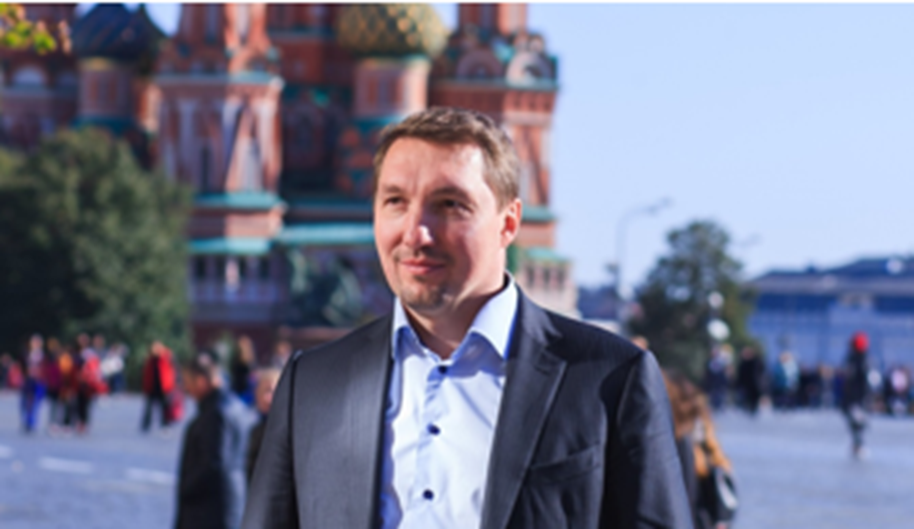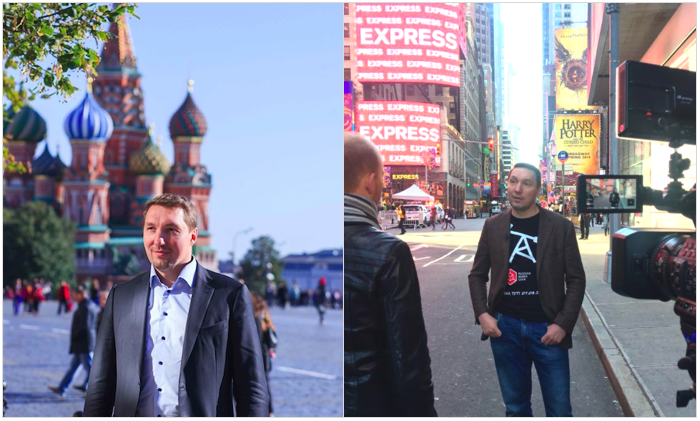Presidential Internet ombudsman Dmitry Marinichev: “In the totally new tech world that is emerging, the state’s capacity to intervene will decline”
20 Декабря 2017

 A successful tech entrepreneur since the late 1990s, Dmitry Marinichev was apppointed Internet Ombudsman by President Putin in 2014. He is also a member of the Expert Committee of the Agency for Strategic Initiatives and a member of the General Council of the Delovaya Rossia business association. In this interview, Mr. Marinichev explains what his role as Internet Ombudsman consists in and how requests from foreign players. He also shares his views about Russia’s interdependence with other countries in today’s globalized world and the impossibility of separate development in the field of technologies.
When and why was the institution of presidential Internet ombudsman created?
A successful tech entrepreneur since the late 1990s, Dmitry Marinichev was apppointed Internet Ombudsman by President Putin in 2014. He is also a member of the Expert Committee of the Agency for Strategic Initiatives and a member of the General Council of the Delovaya Rossia business association. In this interview, Mr. Marinichev explains what his role as Internet Ombudsman consists in and how requests from foreign players. He also shares his views about Russia’s interdependence with other countries in today’s globalized world and the impossibility of separate development in the field of technologies.
When and why was the institution of presidential Internet ombudsman created?
The emergence of an Internet ombudsman was primarily due to the fact that the government realized the importance of the digital economy. The Internet is not only penetrating almost all areas of life, it is becoming the driver of the economy.
Illustrating this, President Putin held a meeting with online entrepreneurs in June 2014. During the meeting, he stated that business should not avoid coming into contact with the government, and that cooperation would be beneficial to both the state and entrepreneurs. Thus, the government started a dialogue with the industry.
A few weeks later, on July 17, the post of the Internet ombudsman was created under the authority of Boris Titov, the Presidential Commissioner for Entrepreneurs’ Rights.
The second reason is the necessity for the government to support the industry. The digital economy doesn’t develop without hurdles. The role of the Internet ombudsman is, first of all, to address the individual inquiries of companies that are experiencing difficulties. The ombudsman also has to identify the essential issues of the industry and analyze the available data on these issues relating to Internet companies.
Thus, the Internet ombudsman represents the interests of the industry and helps solve issues in a dialogue that may involve government bodies, lawmakers, or the judicial branch. We can bypass layers of bureaucracy and speak directly with the presidential administration, for example.
How do you intervene in legislative work?
An important part of our work consists of helping lawmakers improve the quality of legislation. They often lack specific technical expertise on the Internet industry, which may lead to laws or draft laws which can be absurdly inadequate from a business standpoint and be regarded from abroad as “yet another wave of restrictions and censorship.”
For example, back in 2014 we intervened in the preparation of the law on personal data storage. We made the text more flexible than it was in its initial version; then we began a dialogue with ministries to have them apply the law as appropriately as possible.
In their effort to regulate or control the Internet, the authorities don’t always take into account the technical nuances or the business side. They behave like a bull in a china shop!
Do you receive requests or complaints from foreign tech companies or investors?
Yes, a significant number, including from the Association of European Businesses and the American Chamber of Commerce (AmCham). Many of these requests have been related to the law on personal data storage. Some companies have even been affected indirectly by this law. For example, we helped a European maker of medical X-ray equipment; the equipment in itself had no relationship with data storage, but its use did.
We haven’t received any requests from VC investors so far, but we would certainly consider them. We usually treat all requests that concern state bodies.
 In his statements over the past few years, which were marked by political tensions with the West, Dmitry Marinichev repeatedly warned about the risks associated with Russia’s potential economic and technological isolation.
To what extent is the Internet industry affected by corruption or illegal conduct by officials?
In his statements over the past few years, which were marked by political tensions with the West, Dmitry Marinichev repeatedly warned about the risks associated with Russia’s potential economic and technological isolation.
To what extent is the Internet industry affected by corruption or illegal conduct by officials?
Although these things still affect Russian business life to a certain extent, they apply much less to Internet companies. It is hard to illegally seize the assets of companies [Mr. Marinichev refers to cases of property disputes involving corrupt officials (“raiderstvo” in Russian), with legitimate owners losing control of their businesses] whose value lies essentially in human resources or immaterial assets. And corruption is more difficult when payments are made online and duly registered.
Since 2014 most Western tech investors (VCs) have left or shown less interest in the Russian market. Meanwhile, some foreign tech companies have been repelled by, or could not continue to operate under, new legal rules. Would you agree that reducing tech exchanges with the West could make Russia’s technological, economic and social modernization more difficult?
At the starting point, there was the idea of less reliance on foreign technologies. But this has become, in the view of a part of the political elite, a temptation toward isolationism. In a certain sense, this is a psychological legacy of the past. Russia’s elite doesn’t have a technologically or globally-oriented mindset – which is partly a reflection of the nation’s social mindset in general.
Those born and raised in the Soviet Union in the main do not understand, much less trust, the new global technological environment that is emerging before our eyes.
To be fair, one must also say that some people in the Western world, too, may have designs of isolating Russia.
I do not support these views. Import substitution or even protectionism is a legitimate option for certain industries – agriculture, for example. But in the field of IT, this may lead to retardation. IT modernization can only be globally integrated and cooperative. What’s more, it requires the development of civil society and higher education.
Some people here like to speak about “Russia’s own path,” but in IT this is practically meaningless. The Russian IT system is the same as in any country in terms of infrastructure, usage, distribution, payments, etc. There isn’t any specific Russian background there.
Russia is definitely involved in the globalized, interdependent world. It is legitimate for a government to protect state interests – but we are witnessing the emergence of a totally new world, with people’s mindset and behavior changing thoroughly and rapidly. And the state’s capacity to intervene and restrict things will decline.
Many people inside ministries understand these trends very clearly. But some lawmakers have a Cold War mentality, and it is also our role to try to open their minds to these new realities.
Источник: East-West Digital News

 A successful tech entrepreneur since the late 1990s, Dmitry Marinichev was apppointed Internet Ombudsman by President Putin in 2014. He is also a member of the Expert Committee of the Agency for Strategic Initiatives and a member of the General Council of the Delovaya Rossia business association. In this interview, Mr. Marinichev explains what his role as Internet Ombudsman consists in and how requests from foreign players. He also shares his views about Russia’s interdependence with other countries in today’s globalized world and the impossibility of separate development in the field of technologies.
A successful tech entrepreneur since the late 1990s, Dmitry Marinichev was apppointed Internet Ombudsman by President Putin in 2014. He is also a member of the Expert Committee of the Agency for Strategic Initiatives and a member of the General Council of the Delovaya Rossia business association. In this interview, Mr. Marinichev explains what his role as Internet Ombudsman consists in and how requests from foreign players. He also shares his views about Russia’s interdependence with other countries in today’s globalized world and the impossibility of separate development in the field of technologies.